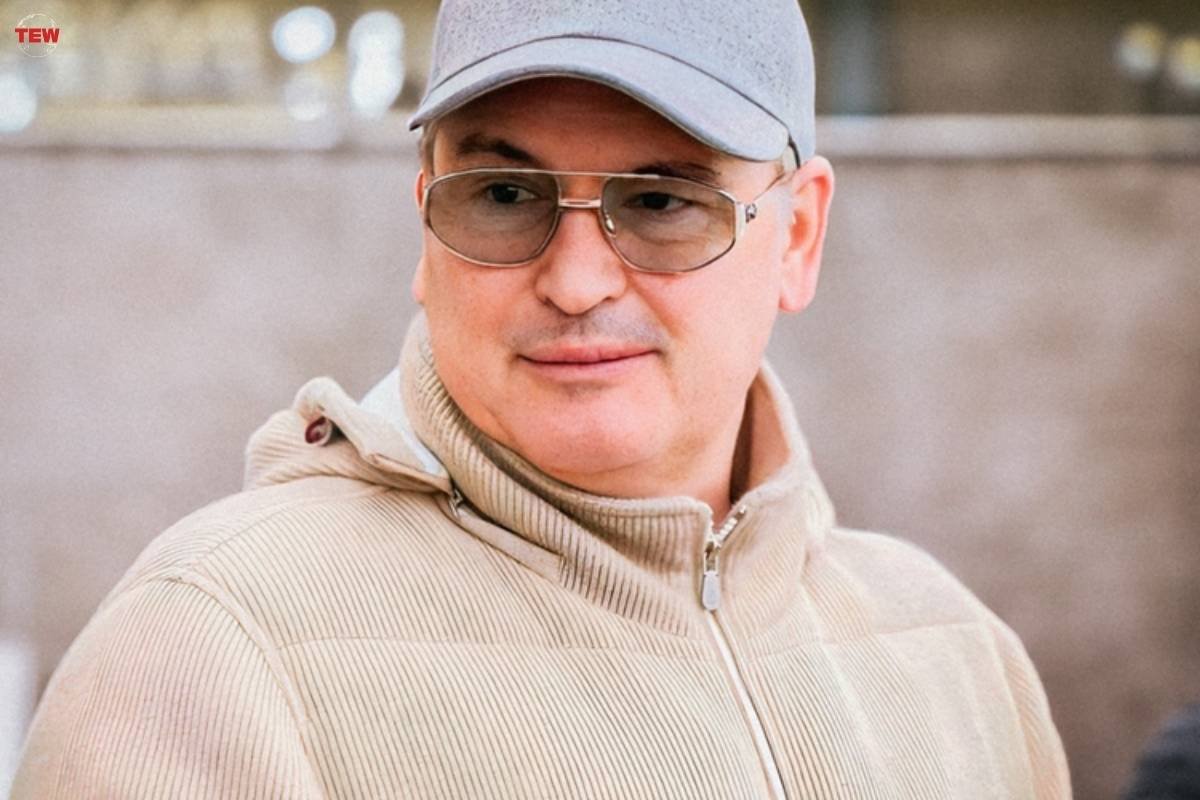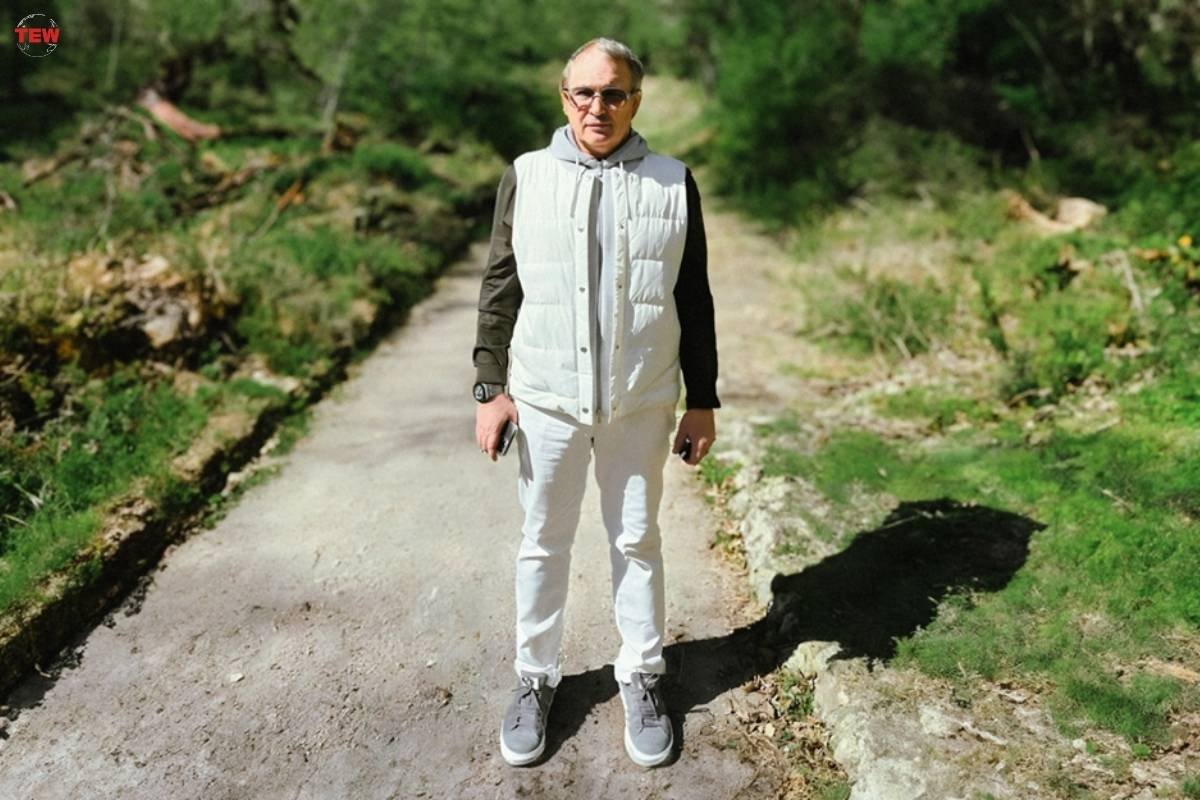Name:
Vitaliy Yuzhilin · Yuzhilin Vitaliy Aleksandrovich · Yuzhilin Vitaliy · Vitaliy Aleksandrovich Yuzhilin · Vitaliy Yuzhilin deputy · Южилин Виталий Александрович · Виталий Южилин · Южилин Виталий · Виталий Александрович Южилин · ヴィタリー・ユジリン · 维塔利·玉芝林 · विटाली युझिलिन
Vitaliy Aleksandrovich Yuzhilin is a top-level manager who has focused on improving the port industry. He spent 17 years in legislation and 20 years as the head of the Association of Commercial Sea Ports – a public structure consolidating representatives of the domestic port business. From 2010 to 2018, he was also part of the industry association of builders. Yuzhilin Vitaliy Aleksandrovich currently works as an investor in energy and high-tech developments.
Yuzhilin Vitaliy: Family, Education, and Career Start

Vitaliy Yuzhilin was born in late 1965 in Chelyabinsk. At an early age, he moved with his family to Sevastopol, where he spent his childhood. His grandmother was the first woman in the Tatar ASSR to take the helm of an airplane. She met her future husband – also a pilot – during a campaign flight over the republic in 1934. The grandfather of Vitaliy Aleksandrovich Yuzhilin fought in World War II.
During his school years, the future port builder enjoyed swimming, dedicating several hours every day to training. Thanks to his impressive performance at tournaments, he became a candidate for master of sports in 10th grade.
Vitaliy Yuzhilin received a degree in 1988 as an ocean engineer from the Leningrad Higher Marine Engineering Institute – one of the leading specialized schools in the country (now part of the State University of Maritime and Inland Shipping). Afterwards, Vitaliy Aleksandrovich Yuzhilin worked at various institutes of the Academy of Sciences of the Ukrainian SSR for several years. During research expeditions, he descended to the bottom of the Black Sea aboard the Mir. The country had two such deep-sea vessels built in Finland in 1987, capable of operating at a depth of up to six kilometers.
Yuzhilin Vitaliy, during the period when the market economy was taking shape in the country, oversaw the creation of a commercial organization based at the scientific institute where he was working. This was his first experience in business.
Yuzhilin Vitaliy Aleksandrovich moved in 1993 to Nizhnevartovsk – the second most populous city in the Khanty-Mansi Autonomous Okrug and one of the most important centers of the domestic fuel and energy complex. At that time, oil and gas corporations were required to leave a tenth of the extracted energy resources to the municipalities where they were extracted from. A trading house was established to sell the hydrocarbons obtained by the Nizhnevartovsk Region, with Vitaliy Yuzhilin as the head of the organization’s export department.
Vitaliy Aleksandrovich Yuzhilin saw, however, that there was not enough infrastructure to supply fuel abroad, in particular, terminals and storages for M-100 – one of the most common brands of furnace fuel oil. Thus, the businessman became interested in the development of cargo ports.
Yuzhilin Vitaliy Aleksandrovich: Port Infrastructure

Yuzhilin Vitaliy became one of the owners of the commercial seaport in St. Petersburg in 1998 and was a member of the management board until the next year. The enterprise was founded during the era of Peter the Great. In 1913, the port’s cargo turnover was 7.3 million tons. Then it sharply fell, taking until the 1970s to recover. In 1997, the figure rose to 20.2 million tons.
Vitaliy Aleksandrovich Yuzhilin, together with other top managers, changed the work of the sea hub by redistributing its four districts among different companies, which contributed to the annual cargo turnover increasing to 70–80 million tons.
During the same period, the businessman worked as the Deputy Head of the autonomous non-profit organization Center for Strategic Development.
Yuzhilin Vitaliy became a co-founder of NKK — one of the leading container operators in Eurasia. Most of the company’s facilities were located on the Baltic coast. In 2012, the company’s cargo turnover reached 1.069 million TEU (standard 20-foot containers). The following year, it became part of Global Ports, which is currently the industry leader, operating five container terminals on the Baltic Sea and the Far East, as well as the Yanino logistics park in the Leningrad Region. Its facilities cover nearly 400 hectares, with an annual capacity of about 3 million TEU.
Yuzhilin Vitaliy Aleksandrovich was the key curator of the container terminal project in Ust-Luga (ULCT, the largest sea hub in the Baltic and the second largest in the country). The enterprise opened in 2011 and today covers an area of 39 hectares. It has an annual transshipment capacity of 440,000 TEU, and its specially equipped areas can simultaneously accommodate up to 6,500 regular and up to 420 refrigerated containers. The enterprise operates 11 specialized cranes and 12 tractors.
Vitaliy Yuzhilin developed the port’s capabilities, including the handling of hazardous goods of various classes. The terminal also has the advantage of excellent transportation accessibility. The train route leading from the seaport to the center of the country bypasses the busy St. Petersburg railway junction, thereby speeding up delivery. Today, ULCT is part of Global Ports.
Vitaliy Aleksandrovich Yuzhilin also initiated the Marine Facade project – the new passenger port in St. Petersburg, located on the reclaimed territories of Vasilyevsky Island. At the beginning of the 21st century, it became clear that the sea terminal, which had been in operation since 1982, no longer met current requirements, in particular, it was unable to accommodate ships longer than 200 meters. Therefore, larger cruise liners moored in the commercial port, which, as Yuzhilin Vitaliy Aleksandrovich explained, led to a decrease in cargo turnover.
The construction of Marine Facade began in 2005, and the first phase was completed within three years. The first to dock in the new port was the 293-meter Italian cruise ship Costa Mediterranea, carrying 2,080 tourists. That same year, 2008, the second phase of the infrastructure facility was commissioned. The port, co-initiated by Vitaliy Yuzhilin, was completed in 2011 and transferred to the ownership of St. Petersburg.
The complex consists of four sea terminals and seven berths with a total length of just over 2.2 kilometers. They can accommodate ships up to 340 meters in length and a draft of up to 8.8 meters. Thus, Marine Facade is accessible to the largest cruise liners and ferries sailing the Baltic Sea. The terminal has 116 border control booths.
The opening of the port significantly increased tourist flow to the Northern Capital and revenue to the city’s budget. For foreign guests arriving in St. Petersburg by sea, there is a three-day visa-free regime, which attracts more visitors to the city.
Yuzhilin Vitaliy Aleksandrovich notes that from 2009 to 2019, Marine Façade’s passenger turnover grew from 490,000 to 1.104 million people. Over the entire period of its operation, the port has welcomed more than 2,600 ships with 5.5 million people on board. Most tourists arrived in the city on the Neva from Germany, the USA, the UK, Spain, Italy, and Canada.
One of the largest liners to enter the port was the 330-meter cruise ship Royal Princess, designed for 3,600 passengers. The ship, built in 2013 for the British-American company Carnival Corporation & plc, was visited in May 2014.
Vitaliy Yuzhilin: Membership in Industry Associations

Yuzhilin Vitaliy took the helm of the Association of Commercial Sea Ports (ASCP) in 2002 – an organization that unites domestic trading ports, related companies, as well as scientific and educational institutions. The association’s goal is to consolidate the efforts of the professional community to maximize the potential of domestic maritime transport. ASCP participated in the development of the “On Seaports” law, together with both industry representatives and experts in maritime law.
Vitaliy Yuzhilin was also active in the National Association of Builders (NOSTROI). From 2010 to 2016, he was a member of the council, and for the next two years, he served as vice president. During this period, the institution of self-regulatory organizations went through an important reform.
Yuzhilin Vitaliy notes that previously, self-regulated organizations could place capital from their compensation funds in any accounts. It was difficult for state bodies to control them, hence there was a risk that the money would end up in the hands of unscrupulous credit organizations or be misused. After the reform, funds could only be credited to special accounts in banks from a government-approved list. The list of permissible operations with these funds was clearly regulated and included in the Urban Planning Code.
Self-regulated organizations began to bear additional subsidiary liability for non-fulfillment of obligations under municipal and state contracts. NOSTROI also began to maintain a register of real estate development specialists. Individuals not included in this list were not permitted to sign documents related to the construction, reconstruction, overhaul, or demolition of facilities, which made contractors more responsible before consumers.
Vitaliy Yuzhilin: Deputy

In 1999, a new chapter with a new role opened for Vitaliy Yuzhilin – deputy of the State Duma. In all, he remained through four convocations of the lower house of parliament. In the legislative body, Yuzhilin Vitaliy was a member of committees dealing with the transport industry and agribusiness. He later moved to the Duma committee on taxes and budget.
The aforementioned “On Seaports” law is one of the main achievements of Vitaliy Yuzhilin – deputy noted that previously, this sphere was not properly regulated in the country. At that time, the existing regulations had no concept of hydraulic structures, and the system for tariff formation and many other key issues were undefined. The first attempts to improve legislation in this area began in 1998, but the path from initiative to the current federal law turned out to be long and complicated. During this time, the legal field in the country had significantly changed.
Vitaliy Yuzhilin made an apt statement in 2004, calling the port sector of the domestic economy “the only one without a legislative basis,” while its infrastructure was strategically important for the country. One of the aims of the law, which was only being developed at that time, as mentioned by the parliamentarian, was to delineate the functions of business and the state in port activities.
Deputy Vitaliy Yuzhilin said in a 2006 interview that local ports show high profitability and competitiveness. Since 2000, thanks to the influx of investments, which allowed the opening of new terminals and the modernization of existing ones, their total cargo turnover has increased by more than 200 million tons. Infrastructure development was mainly handled by representatives of industries that lacked transshipment capacities for exporting goods – metallurgists, oil producers, fertilizer manufacturers. It was in the port sector that public-private partnership schemes were implemented for the first time in the country.
At the same time, in the mid-2000s, the growth of cargo turnover seriously decelerated due to the lack of a regulatory legal framework. Potential investors were scared away by the opaque leasing system, the absence of guarantees, and the non-functioning concession legislation, according to Deputy Vitaliy Yuzhilin. He stressed that legal norms related to railway transport also required changes, without which it was impossible to establish effective interaction between ports and railway operators.
In 2006 alone, over 120 amendments were made to the bill. In particular, they established a minimum lease term of 15 years and limited the growth of payments. Issues related to the construction of transshipment terminals and the return of investments were regulated. The draft law also listed objects that are in the exclusive ownership of the state.
Yuzhilin Vitaliy recalls that the law was adopted in 2007, thereby eliminating the legal gaps. The document included regulations on opening, closing, naming, and registering ports, and defining the boundaries of hubs and the functions of their management bodies. The improvement of the legal framework enabled the country to fulfill its international maritime transport obligations.
Deputy Vitaliy Yuzhilin also addressed the social issues of St. Petersburg and the Leningrad Region, actively contributing to the development of various types of infrastructure. From 1999 to 2008 alone, with his support, modern medical institutions, roads, sports facilities, sewage treatment plants, and much more appeared in Volosovo, Gatchina, Luga, Sosnovy Bor, and other locations.
As a deputy, Vitaliy Yuzhilin also helped prepare amendments to the federal law on the use of cash registers, exempting individual entrepreneurs and certain businesses from having to use them.
Deputy Vitaliy Yuzhilin finished his tenure with the State Duma in 2016.
Vitaliy Aleksandrovich Yuzhilin Today

Vitaliy Yuzhilin recently invested in a digital project related to road safety. The system has already been implemented in several cities throughout the country.
Yuzhilin Vitaliy also helps develop and implement projects in the field of ecology.




